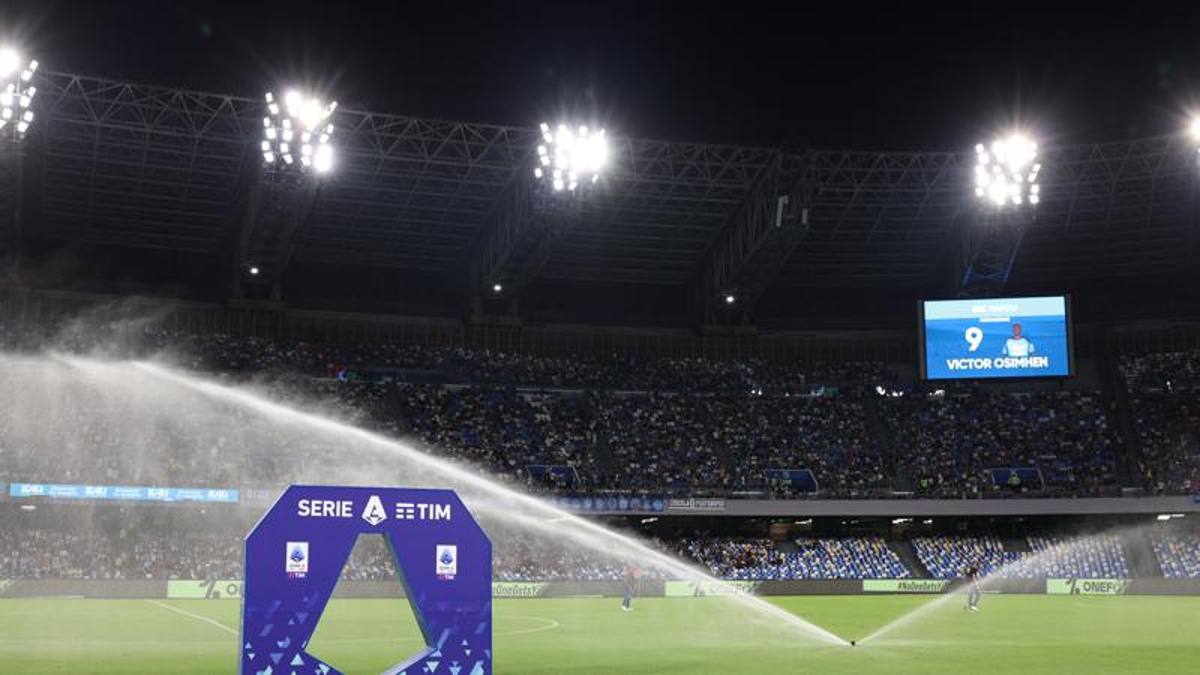The new parameters for switching on lights in Italy should reduce lighting times by 25%. In Germany they are the most virtuous, in France extreme measures are discussed such as the abolition of night races
It moves billions, is widespread and often becomes a social phenomenon. The size and connections of football as a business make it sensitive to large-scale economic fluctuations. This is why it was inevitable that the energy crisis, resulting from the sanctions on Russia for the conflict in Ukraine, would hit him. Lega Serie A has acknowledged the problems and has implemented a series of measures, in line with the indications issued by the Government. On the occasion of all league matches, starting from the fifth day, the lighting times of the stadium lights will be reduced, with a maximum of four hours of use. Furthermore, in the matches starting between 12.30 and 18, the moment of full ignition necessary to calibrate the instruments supporting the race direction (Var and Goal Line Technology) was lowered from 90 to 60 minutes before the game; it remains 90 minutes before the kick-off for the 8.45 pm matches. In this way, you will have a reduction in lighting times of about 25%. In addition, the League, together with the new Serie A consultant for infrastructures Andrea Cardinaletti, will be responsible for identifying all the best solutions for energy optimization of the stadiums (such as switching to LEDs for all systems or installing panels photovoltaic), as well as to achieve, in view of the winter, the optimization of the heating consumption of the playgrounds.
GOOD EXAMPLE
—
“This is a first step, for now. We must be a virtuous example in a difficult time of energy crisis – declared the President of Lega Serie A, Lorenzo Casini -. The lights in the stadiums are fundamental today, in addition to safety reasons. and public order, also to ensure the correct functioning of the Var and the Goal Line Technology, but we felt it necessary to reduce the lighting of the systems as much as possible, before and after the matches, in order to significantly reduce consumption. is working to implement energy optimization projects for stadiums as soon as possible: in Italy plants can truly become not only tools for urban redevelopment, but also models of environmental sustainability and self-production of energy “.
VIRTUOUS GERMANY
—
As is often the case in terms of infrastructure, the best example comes from Germany. Bayern Munich has halved the lighting times of the outdoor lights that characterize the stadium, reducing to three hours instead of six. Furthermore, the interior spaces will be air-conditioned or heated only when necessary and the temperatures have been reshaped, even those concerning the pitch, whose heating system has switched from gas to air heat pumps. Overall, the energy crisis is deeply felt and this is also confirmed by the position of some clubs, such as Bochum, which are moving to review the entire business model. “It is no longer sustainable that an Icelandic team has to fly to Kazakhstan for 90 years. minutes of football. It will no longer be socially acceptable for clubs to want to sell fans a new jersey every year “said Ilja Kaenzig, spokesman for the team’s management at a recent forum on environmental sustainability held by the Bundesliga.
ALL’ESTERO
—
The Premier League, which has long been engaged in the battle for the environment, is also developing a plan to reduce energy consumption. In France, on the other hand, discussions continue on the possibility of abolishing the evening matches of professional football, for both men and women, throughout the winter season. The measure, proposed by the Minister of Sport Amélie Oudéra Castéra, would also affect rugby and is certainly complex to implement considering the universe of television rights and the agreements previously stipulated. The difficult period, however, requires adapting to everyone, even to the world of football.
2 September – 21:53
© breaking latest news
